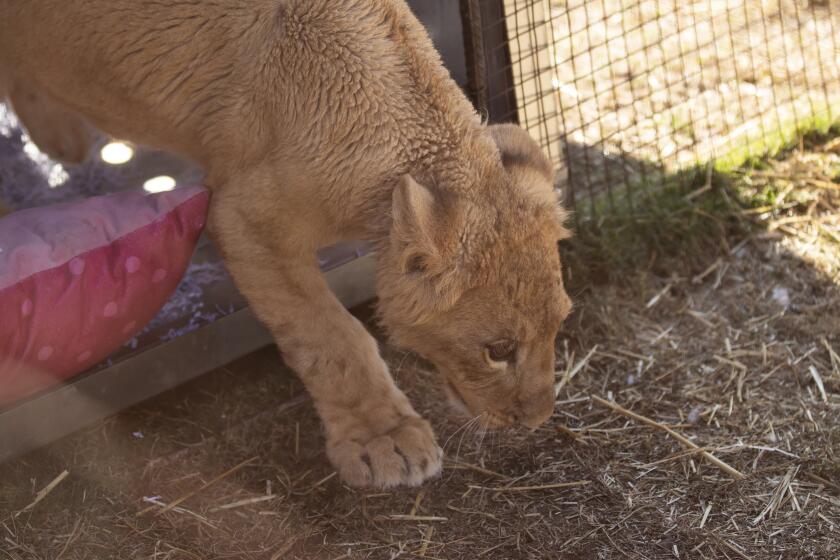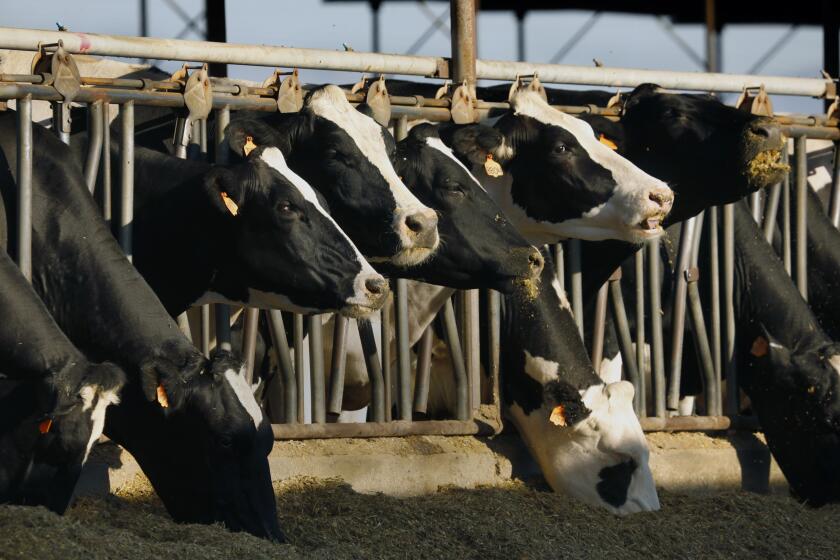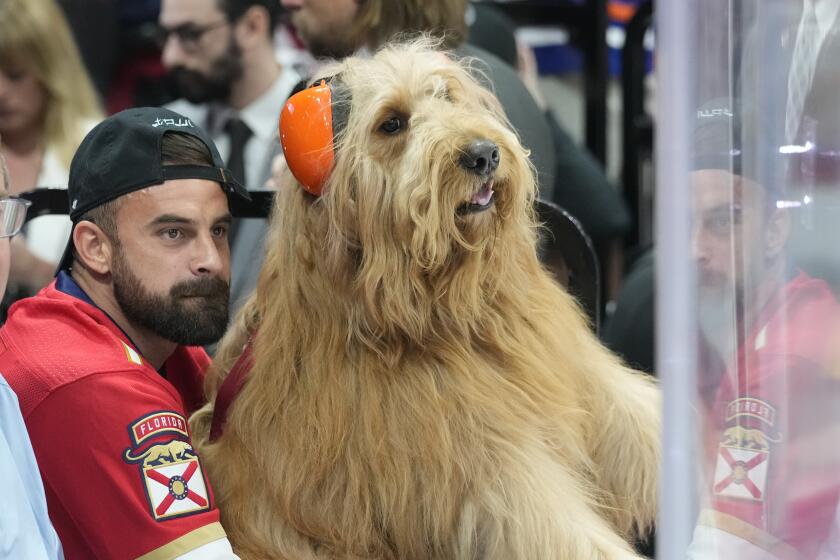Ferret Breeders Blame Feed for Animals’ Deformities, Deaths : Courts: Females’ jawbones collapsed and babies were born with broken backs. Cats at separate site were also affected. Trial in civil suit is set for later this year.
Kurt Wenzel went to his ferret farm with dread every morning, fearful of the new carnage he would find.
In late 1991, the animals on the farm he owned with Lynn (Fox) Morton began losing teeth. After a few months, the true atrocities began: Jaws collapsed on pregnant females and babies were being born with broken backs, with twisted limbs, without skulls.
Each day they carted more females to the incinerator, put more deformed babies to sleep.
Wenzel and Morton watched their farm, the nation’s largest breeder of pet ferrets, disintegrate; 3,000 females died by 1993.
After frantic investigation, they finally discovered what they believe to be the cause: a special feed Agway Inc. of DeWitt, N.Y., had developed for them.
They are now near bankruptcy and preparing for their $5.6-million lawsuit against Agway, scheduled to go to trial in federal court at year’s end. Although they may recover financially, they will never recover emotionally.
“A couple years ago, my hair was dark,” said the gray-haired Wenzel. “It was hard on me and hard on my family. How do you explain to your daughter why Daddy is so sad all the time?”
Ferrets, wiry, multicolored cousins of weasels, otters and skunks, have become popular pets in the last decade. A baby ferret costs from $125 to $175.
Before 1991, Path Valley Farm fed ferrets a pellet designed for minks. Morton asked Agway to duplicate the mink feed but make it tastier.
“So the babies would want to eat it,” Morton said, as a newborn ferret clung to her sweater.
Then, several months later, employees noticed some ferrets losing teeth. Sporadic dental problems continued for several months and the rate of faulty pregnancies slowly increased.
Veterinarians ruled out genetic problems or a communicable disease, so Wenzel and Morton contacted Agway.
Company nutritionists said their product was fine and suggested eliminating the meat mix that was combined with the Agway pellets.
“That’s when all hell broke lose,” Morton said.
Nearly every ferret began to lose teeth. The jawbones of hundreds of ferrets collapsed. More mothers suffered miscarriages, which often led to uterine infections and infertility. Others gave birth to misshapen babies that had to be euthanized.
“It was a house of horrors,” Wenzel said.
Morton noticed similar symptoms in the purebred cats she raised in Illinois. Months earlier Agway had assured her that cats could eat the pellets.
“I’m not a nutritionist,” she said. “I guess I’m naive for trusting people.”
Morton finally sent the Agway feed to experts around the country for analysis. The reports that came back were shocking: The feed had two parts phosphorous for every one part calcium.
“No mammal on earth can survive with an inverted phosphorous-calcium ratio,” Morton said.
When the body determines phosphorus outweighs calcium in the blood, it takes calcium from bones or from a developing fetus.
Agway has denied that the ratio in the feed was wrong. It referred all questions on the lawsuit to Harrisburg attorney Frank Marshall Jr., who would not discuss most specifics of the case.
Marshall said the company would prove that the problems may have come from inbreeding or from the ingredients that were added to the feed.
Morton said the farm takes special care to prevent inbreeding and the problems got worse when they gave the ferrets nothing but Agway feed. She never added anything to the Agway pellets she fed her 50 cats; half died.
“I guess they think some genetic cloud flew to Illinois and infected my cats,” she said.
Since dropping the Agway feed, no new problems have arisen, although many of the adult ferrets are still losing teeth. It will take more than five years to replace the 3,000 mothers who died.
“This isn’t a factory. These aren’t cows that we send to the slaughterhouse,” Wenzel said. “These are pets with personalities.”
Morton says she has no intention of accepting a low settlement offer from Agway.
“If I knew we were going to lose, I’d still carry it through,” she said. “I have sat up too many nights holding too many dying animals.”
More to Read
Start your day right
Sign up for Essential California for news, features and recommendations from the L.A. Times and beyond in your inbox six days a week.
You may occasionally receive promotional content from the Los Angeles Times.






